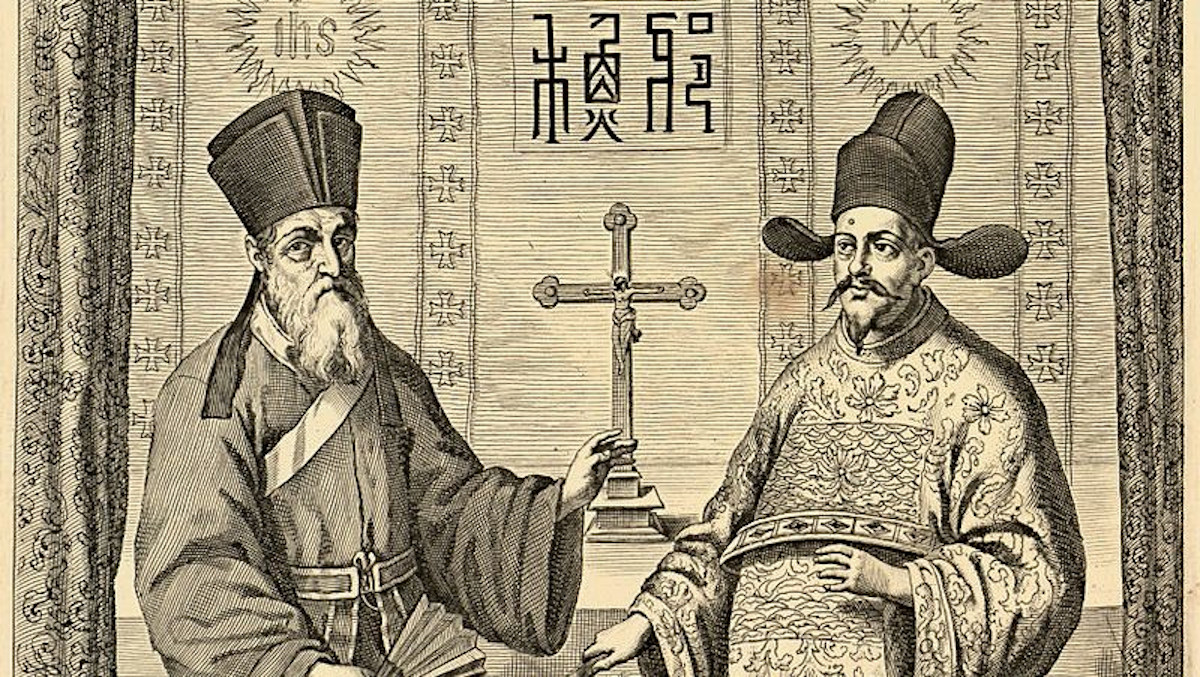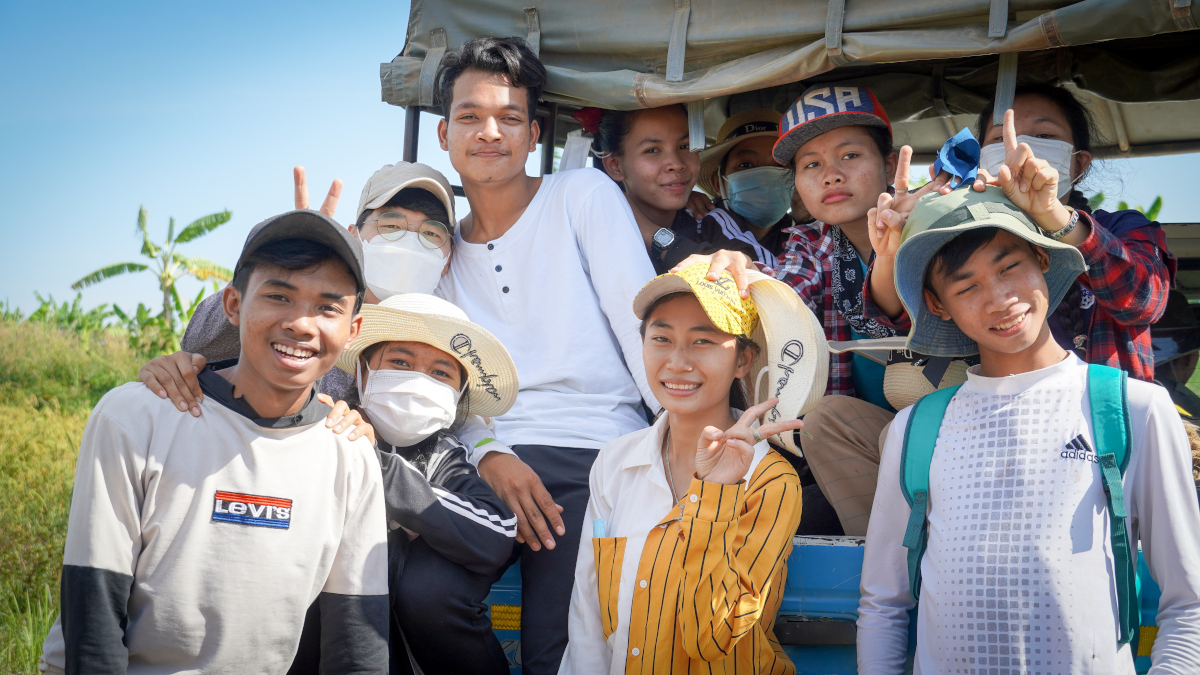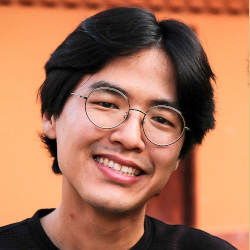
Matteo Ricci SJ in the clothes of a Confucian scholar and his friend Xu Guangqi (徐光啓, Paul), the greatest politician and scholar of the time, also known as one of “the three pillars of Chinese Catholicism”
I have been living in Sereisophon, a small town in Cambodia, for nearly two years now. Although I was sent here as a missionary, I honestly had never had any prior experience of leading people to church to accept the Christian faith. I know that this is not something to be proud of, especially when I am a Jesuit scholastic. Thus, I sometimes feel a little awkward that I left a paradise of Christianity, where there are allegedly more churches than convenience stores, to live as a missionary in a Buddhist country, where there are temples in every neighbourhood.
When I first came to Cambodia, I had the simple idea that the aim of our mission is to catechise and baptise the local people. However, as I spend more time here, I am gradually realising that the life of Cambodian Catholics is tough. A few of them can even be called “flour believers,” a term used to refer to people back when Korea was still a developing country who would come to church only to receive some benefits, since local churches were often used as distribution points for relief items, such as beans and flour. Sadly, some of these people tended to give up their faith when they had nothing more to receive from the church. In other words, even if they submitted to the Catholic faith, they still at any time could return to their original faith, which had been deeply rooted in their lives. This is why it is quite rare to find stories of great saints like St Francis Xavier, who apparently gathered people by the river, sprayed water, and baptised thousands of people at a time. What, then, should be the aim of our mission in Cambodia?
The Jesuits have devoted much in search of converts to Christianity around the world since its foundation, as described well in films like “Mission” (Latin America) and “Silence” (East Asia). The Korean Catholic church is known for its unique history as a people who accepted the Christian faith by themselves without the help of foreign missionaries; however, this would not have been possible if it had not been for a book, “The True Meaning of the Lord of Heaven (天主實義),” written by an Italian Jesuit, Matteo Ricci, who dedicated his whole life to the Chinese Mission in the 17th century. The first seeds of Christianity in Korea were sown by this book.
Though there is no doubt that “天主實義” is one of Ricci’s masterpieces, in fact, it was not his first book. His first book, also known as the first book written in Chinese by a Westerner, was “On Friendship (交友論),” which distilled the best ideas on friendship from Renaissance Latin texts into 100 pure and provocative maxims. The first line says: “吾友非他, 卽我之半, 乃第二我也, 故當視友如己焉” (A friend should relate to a friend as to oneself, because a friend is another self). The idea, which connotes “a friend is another self”, instantly drew interest among the intellectuals, Confucian scholars, at that time. As a result, the success of “交友論” became a stepping stone to introducing Christianity to China and carrying out a variety of apostolates.
The fact that a book about friendship made dialogue possible between Christianity and East Asia at that time suggests a lot even in our present time. In the last two years, my Regency has brought me new friends among the Cambodians I have met, especially the youth. Spending time with parish students every Sunday is the most delightful and healing moment in my daily life. Whenever they share their worries and difficulties with me, albeit it is sometimes challenging to reach the depth of what they have shared due to the language barrier, their words send a warm feeling down to the bottom of my heart — which makes me feel like they are a part of myself. Many of my young friends here are not baptised, but whenever I see them pray alone in silence in the chapel, I can somehow sense God’s presence within them.
In a nutshell, I can say now that the main aim of our mission is to become friends with the marginalised and to reach out to the “other” with a Christ-centered heart as if they are our “another self”. Further, as we celebrate Mission Sunday, I hope it will be a good opportunity for us to look carefully around us and to see if there are any young people who are lonely and anxious, and feel alienated from the church community.








